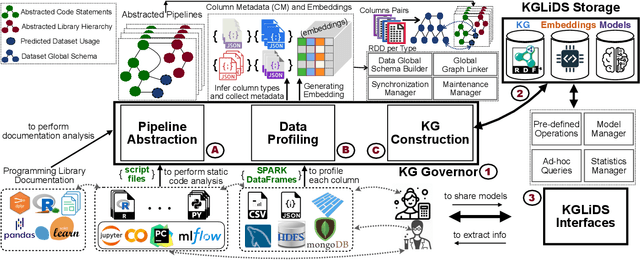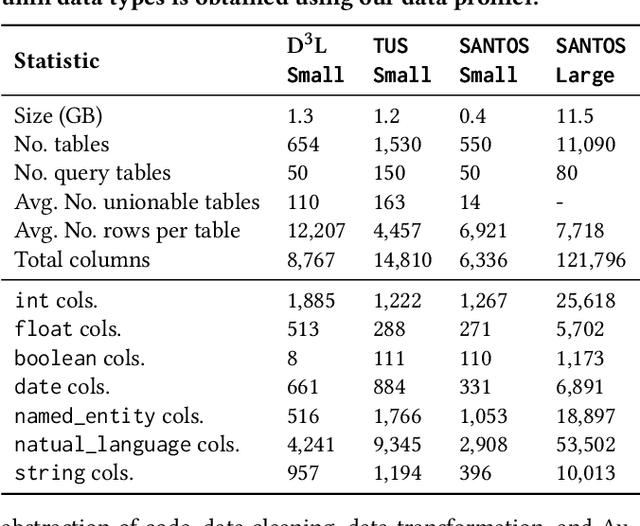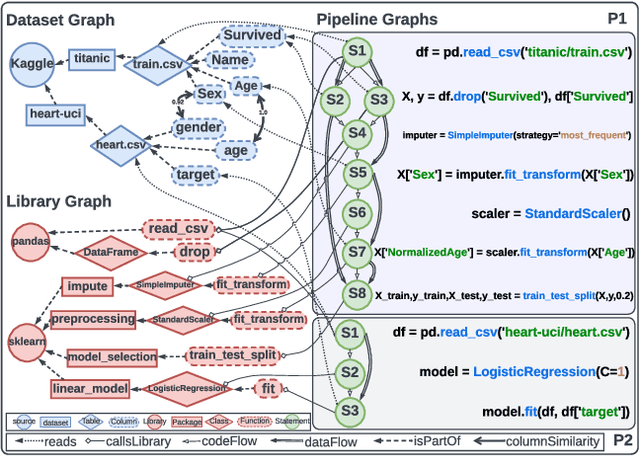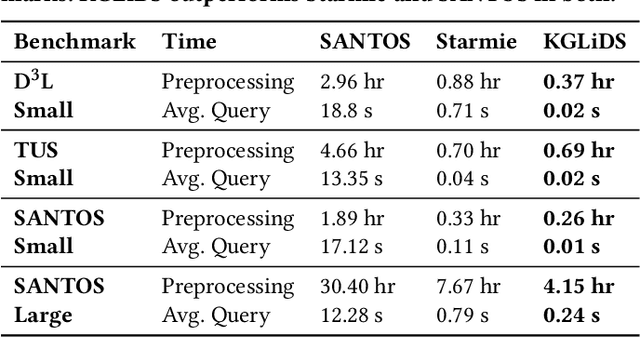Philippe Carrier
Linked Data Science Powered by Knowledge Graphs
Mar 09, 2023



Abstract:In recent years, we have witnessed a growing interest in data science not only from academia but particularly from companies investing in data science platforms to analyze large amounts of data. In this process, a myriad of data science artifacts, such as datasets and pipeline scripts, are created. Yet, there has so far been no systematic attempt to holistically exploit the collected knowledge and experiences that are implicitly contained in the specification of these pipelines, e.g., compatible datasets, cleansing steps, ML algorithms, parameters, etc. Instead, data scientists still spend a considerable amount of their time trying to recover relevant information and experiences from colleagues, trial and error, lengthy exploration, etc. In this paper, we, therefore, propose a scalable system (KGLiDS) that employs machine learning to extract the semantics of data science pipelines and captures them in a knowledge graph, which can then be exploited to assist data scientists in various ways. This abstraction is the key to enabling Linked Data Science since it allows us to share the essence of pipelines between platforms, companies, and institutions without revealing critical internal information and instead focusing on the semantics of what is being processed and how. Our comprehensive evaluation uses thousands of datasets and more than thirteen thousand pipeline scripts extracted from data discovery benchmarks and the Kaggle portal and shows that KGLiDS significantly outperforms state-of-the-art systems on related tasks, such as dataset recommendation and pipeline classification.
 Add to Chrome
Add to Chrome Add to Firefox
Add to Firefox Add to Edge
Add to Edge